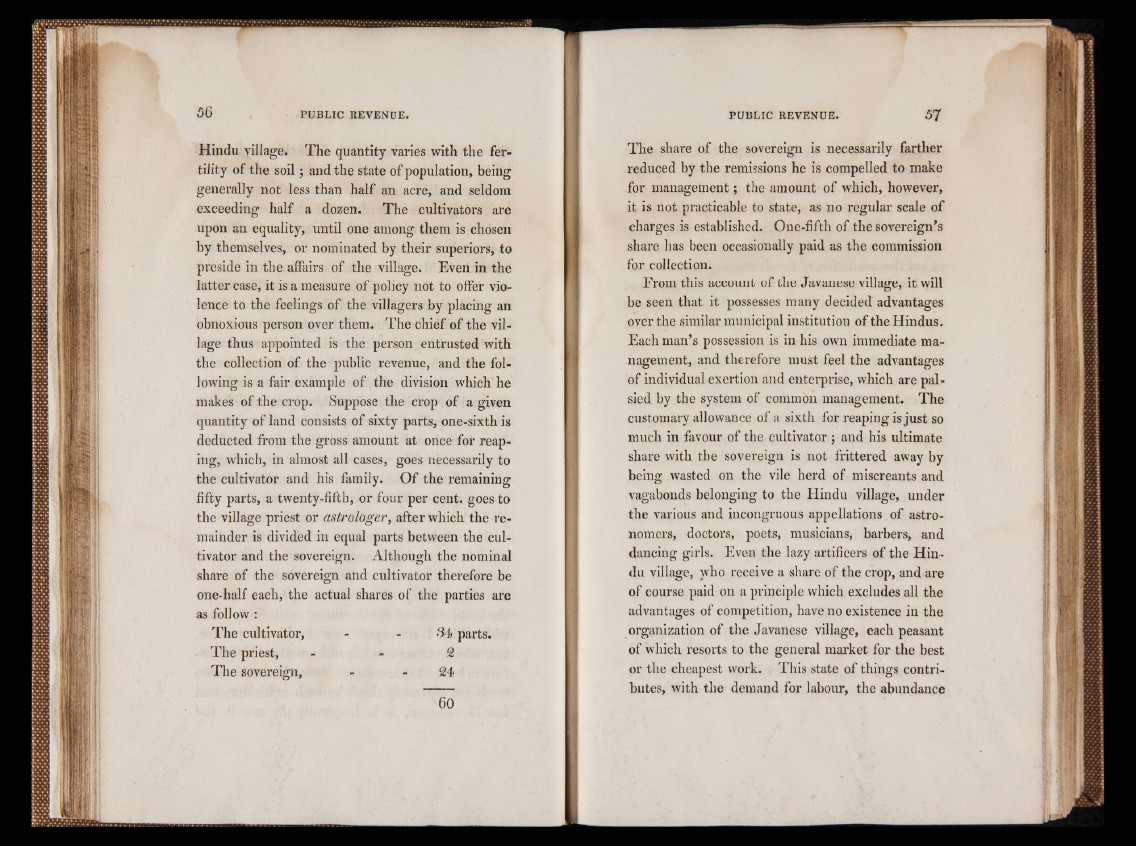
PUBLIC REVENUE.
Hindu village* The quantity varies with the fertility
of the soil; and the state of population, being
generally not less than half an acre, and seldom
exceeding half a dozen. The cultivators are
upon an equality, until one among them is chosen
by themselves, or nominated by their superiors, to
preside in the affairs of the village. Even in the
latter case, it is a measure of policy not to offer violence
to the feelings of the villagers by placing an
obnoxious person over them. The chief of the village
thus appointed is the person entrusted with
the collection of the public revenue, and the following
is a fair example of the division which he
makes of the crop. Suppose the crop of a given
quantity of land consists of sixty parts, one-sixth is
deducted from the gross amount at once for reaping,
which, in almost all cases, goes necessarily to
the cultivator and his family. Of the remaining
fifty parts, a twenty-fifth, or four per cent, goes to
the village priest or astrologer, after which the remainder
is divided in equal parts between the cultivator
and the sovereign. Although the nominal
share of the sovereign and cultivator therefore be
one-half each, the actual shares of the parties are
as follow:
The cultivator, - - 34 parts.
The priest, - - 2
The sovereign, - - 24
PUBLIC REVENUE. 57
The share of the sovereign is necessarily farther
reduced by the remissions he is compelled to make
for management ; the amount of which, however,
it is not practicable to state, as no regular scale of
charges is established. One-fifth of the sovereign’s
share has been occasionally paid as the commission
for collection.
From this account of the Javanese village, it will
be seen that it possesses many decided advantages
over the similar municipal institution of the Hindus.
Each man’s possession is in his own immediate management,
and therefore must feel the advantages
of individual exertion and enterprise, which are palsied
by the system of common management. The
customary allowance of a sixth for reaping is just so
much in favour of the cultivator ; and his ultimate
share with the sovereign is not frittered away by
being wasted on the vile herd of miscreants and
vagabonds belonging to the Hindu village, under
the various and incongruous appellations of astronomers,
doctors, poets, musicians, barbers, and
dancing girls. Even the lazy artificers of the Hindu
village, who receive a share of the crop, and are
of course paid on a principle which excludes all the
advantages of competition, have no existence in the
organization of the Javanese village, each peasant
of which resorts to the general market for the best
or the cheapest work. This state of things contributes,
with the demand for labour, the abundance